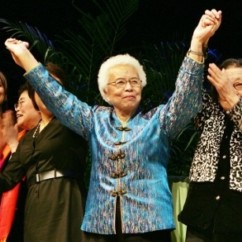Wang Xingjuan
Honoree, 2017

In the 1980s, as China began to open its economy to the world, Beijing Publishing Company editor Wang Xingjuan became increasingly aware of women’ s struggles to adapt to change. After retiring in 1988, she and a group of colleagues founded a non-governmental women’ s research institute to examine trends in women’ s employment and political participation.
Their research confirmed the difficulties women were facing in a China in transition – from unemployment to divorce, domestic violence, and a sense they had nowhere to turn. Determined to offer support but constrained by their limited resources, Wang Xingjuan launched China’ s first women’ s hotline in 1992. As she said, “We were lacking material resources‚Ķ[but] we had a group of people like me – women who were enthusiastic about working to improve women’ s lives.”
The hotline was hugely successful from the start. Today, it serves 600 calls each month. And over time, the initiative grew into the Maple Women’ s Counseling Center – with Wang Xingjuan as director – providing not only counseling services for women, but also gender-sensitivity training workshops for police, judges, doctors, and local officials.
“When a woman is having difficulties,” says Wang, “if I can give her some help or stretch out a hand to her, it costs me nothing but gives me a kind of feeling that I have achieved something.”